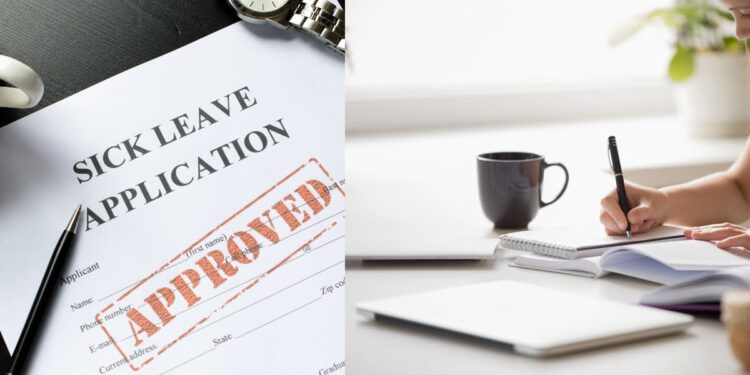Navigating sick leave can be tricky in any organization, but Indian companies often bring their own unique twists to the process. Here’s what you need to know to make the experience smoother, whether you’re on the employee or employer side. Sick leave procedures vary from company to company, but the basics revolve around a few key points that apply almost universally.
Table of Contents
Key Points:
- Know the standard rules your company follows.
- Understand documentation requirements, including extended sick leave options.
- Check if your organization requires advance notice.
- Clarify if and when you’re expected to check in during your leave.
Ensure you understand the consequences of long absences.
Types of Sick Leave Available in India
Indian companies typically provide various types of medical leave, but they often differ based on the industry, company policies, and regional labor laws.
In private companies, you’ll generally see three main types: casual, earned, and medical leave.
Government employees have a few additional options. Casual leave covers short absences, medical leave handles illnesses or injuries requiring extended recovery, and earned leave accumulates over time. For those needing a longer break, companies might ask for additional documentation, especially when an extended sick leave goes beyond standard limits.
Understanding each type of leave means less confusion and a more cooperative experience between employee and HR.
Documentation: Medical Certificates and Other Essentials
Companies often ask for a medical certificate, especially for extended absences. This serves as proof of your health condition and ensures the legitimacy of your claim. Getting a medical certificate online for extended sick leave has become convenient, fast, and equally credible. Platforms now offer quick, secure access to certificates, which can even be issued by registered doctors without stepping out of your home.
For absences longer than three days, some companies expect an original certificate from a registered medical practitioner. Others may request additional verification depending on the severity or length of the illness. Staying prepared with the right documentation can save you from unnecessary HR back-and-forth.
What Employers Expect from You

Employers expect employees to handle their sick leave professionally, which often includes giving notice and following company policies. Many companies have a basic protocol for short absences, where a quick notification to your manager or HR might be sufficient. In cases requiring an extended leave, it’s best to notify your manager promptly and, if possible, provide an estimated timeline for your return. Companies appreciate employees who keep the communication line open, showing respect for both the team and the workflow.
Some organizations have specific policies that require you to check in periodically if you’re absent for more than a week. Others may leave it up to your discretion, but a proactive approach shows accountability and strengthens trust with your employer.
Navigating Company Policies: Your Rights and Obligations
Your rights as an employee on medical leave are protected, but obligations vary widely depending on your employer. Companies generally align with labor laws, but they can add their own rules and procedures. Large corporations might have strict guidelines that leave little room for exceptions, while smaller companies may approach things with more flexibility.
Understanding your rights is key to using your leave without affecting your professional relationship. For example, if you feel pressured to return before full recovery, check with HR. Employee rights should always protect against returning to work before you’re genuinely ready. However, prolonged or frequent absences without valid reasons can create misunderstandings and may affect job stability.
Tips for Managing Sick Leave Effectively
Here’s a simple guide for employees planning their time off effectively:
- Inform promptly: Notify your manager or HR at the earliest.
- Documentation matters: Arrange the required medical certificates.
- Plan for long absences: Communicate with your team about potential impacts.
- Stay reachable: Ensure you’re accessible if the team needs urgent clarification.
- Recovery comes first: Remember, the ultimate goal is a full recovery.
Following these tips will make the process smooth and respectful on both sides, balancing company needs with personal health.
How Indian Companies View Sick Leave

The view on sick leave policies has shifted significantly in Indian companies over recent years. Mental health awareness and wellness programs are on the rise.
While traditional views saw long sick leave as disruptive, modern companies increasingly recognize the importance of wellness. A healthier employee returns more productive and committed.
In industries like IT, banking, and corporate, the impact of employee well-being has led to better support systems. Companies now invest in wellness programs, giving employees confidence that taking care of their health won’t harm their careers.
Policies, however, still vary widely. Some smaller firms or companies with limited resources may encourage quick returns. Others, particularly those with established HR departments, adopt wellness-driven policies, recognizing that pushing employees too early back into work often backfires.
Extended Sick Leave – What to Expect
Extended sick leave becomes essential in cases of prolonged illness or serious injuries. Not all companies handle extended leave the same way, so review the specifics in your company handbook or check with HR. Employees with severe conditions might find that an extended leave allows them to recover fully without constant worry about job security. However, the extended period also brings additional expectations, such as periodic updates on your progress and a reliable estimate of your return.
Some companies might require you to apply for extended leave with additional medical proof. Ensure you check with your company policies and, if possible, have a clear record to support your needs.
Getting Back to Work – Making the Transition Smooth

Returning to work after a long absence can feel overwhelming. A few things can ease the transition:
- Arrange a catch-up meeting: Request a meeting with your manager to get updated on work status.
- Update your knowledge: Review any new policies, updates, or projects missed during your absence.
- Prepare mentally: Take the time to readjust and discuss workload adjustments if necessary.
- Plan a gradual return: Consider easing back with lighter tasks if allowed, avoiding burnout.
Companies understand that recovery doesn’t stop the moment you return. Open communication will show your readiness without overextending yourself.
FAQs
1. Can I take sick leave during my probation period?
Yes, but check with HR as some companies have specific policies.
2. What if I can’t get a medical certificate immediately?
Notify HR about the delay; they generally understand.
3. Is it acceptable to get an online medical certificate?
Yes, valid certificates from registered sources are accepted in many organizations.
4. Should I inform my manager if I need an extended leave?
Absolutely, transparency keeps work processes smooth.
Conclusion
Sick leave procedures in Indian companies differ, but knowing what to expect and understanding your company’s policies can make it smoother for everyone. Taking time for recovery protects health and job performance. Employees have a right to health without job stress, and clear procedures help everyone stay on the same page.

